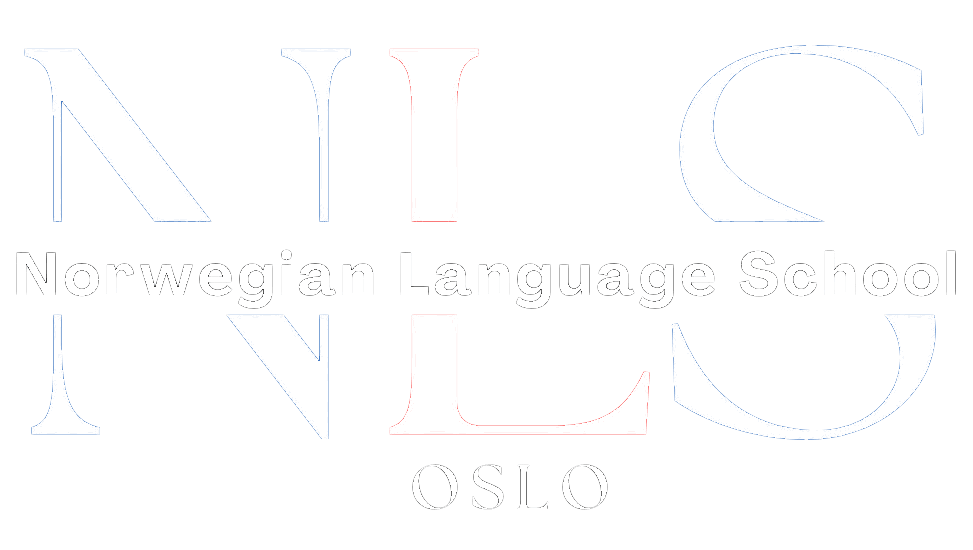

Norwegian Mental Health Vocabulary: An Exploration of Emotions and Mental Health
Mental health is a vital aspect of overall well-being, and understanding the language around mental health is essential for communication, support, and personal reflection. In Norway, mental health is an increasingly prominent topic in both professional and personal conversations. Whether you are a healthcare professional, a counselor, a student, or simply someone looking to better understand your own emotional landscape, developing a robust Norwegian vocabulary for emotions and mental health is key.
This article will delve into the essential mental health vocabulary in Norwegian, exploring words and phrases that can help you express emotions, discuss mental health concerns, and understand the nuances of mental well-being in the Norwegian language. For those aiming to enhance their language skills, NLS Norwegian Language School in Oslo offers comprehensive courses designed to help you build the vocabulary and confidence needed to navigate conversations about mental health. You can find more information and sign up for our courses here: NLS Norwegian Language School.
Table of Contents
ToggleWhy Understanding Mental Health Vocabulary in Norwegian is Important
Mental health is a sensitive and complex topic that requires careful language use. Having the right vocabulary is crucial for expressing emotions clearly, seeking help when necessary, and supporting others in their mental health journeys. In Norway, the healthcare system and mental health services prioritize understanding and addressing emotional well-being, and being able to communicate your thoughts and feelings accurately in Norwegian helps foster trust and clarity in conversations with mental health professionals, colleagues, friends, and family.
For non-native speakers living in Norway, mastering the vocabulary surrounding emotions and mental health is equally important. Whether you’re engaging in therapy, supporting a friend through a tough time, or simply navigating your own emotions, knowing how to articulate your feelings in Norwegian can deepen connections and enhance your mental health awareness.
1. Basic Norwegian Vocabulary for Emotions
Before diving into specific mental health terminology, it’s important to start with the foundational vocabulary for expressing emotions in Norwegian. Emotions are an integral part of any conversation around mental health, and having the words to describe them will improve your ability to communicate how you feel.
Common Words for Emotions:
- Følelser – Emotions
- Glade – Happy
- Trist – Sad
- Sint – Angry
- Redsel – Fear
- Frustrasjon – Frustration
- Lettelse – Relief
- Sorg – Grief
- Engstelig – Anxious
- Sjenert – Shy
- Skuffet – Disappointed
- Nervøs – Nervous
- Euforisk – Euphoric
- Forvirret – Confused
- Trygg – Safe
Complex Emotions:
Emotions are not always simple, and Norwegian has terms to describe more nuanced feelings.
- Ambivalent – Ambivalent
- Overveldet – Overwhelmed
- Skyldfølelse – Guilt
- Skam – Shame
- Misunnelse – Envy
- Tvil – Doubt
- Håpløshet – Hopelessness
- Takknemlighet – Gratitude
- Sårbar – Vulnerable
- Respekt – Respect
Describing Mood:
- Humør – Mood
- Humørsvingninger – Mood swings
- Irritabel – Irritable
- Optimistisk – Optimistic
- Pessimistisk – Pessimistic
- Utbrent – Burned out
- Urolig – Restless
- Ro – Calm
These words serve as the basis for conversations about emotions, helping you navigate discussions on mental well-being. But mental health is more than emotions—it involves psychological, emotional, and social factors that shape how we feel, think, and behave. Understanding the specific vocabulary for mental health is the next step in this exploration.
2. Key Mental Health Terms in Norwegian
Mental health is a broad concept, encompassing everything from emotional regulation to psychological disorders. Below are essential terms used in Norwegian when discussing mental health:
General Mental Health Terms:
- Mental helse – Mental health
- Psykisk helse – Psychological health
- Psykisk velvære – Psychological well-being
- Psykisk sykdom – Mental illness
- Mental belastning – Mental strain
- Mental slit – Mental fatigue
- Behandling – Treatment
- Terapaut – Therapist
- Psykolog – Psychologist
- Psykiater – Psychiatrist
- Rådgivning – Counseling
- Selvhjelp – Self-help
- Støttegruppe – Support group
- Kognitiv terapi – Cognitive therapy
- Medisinering – Medication
- Diagnose – Diagnosis
Common Mental Health Disorders:
Mental health conditions are an important part of understanding and addressing mental well-being. Below are the Norwegian terms for some of the most common mental health disorders:
- Depresjon – Depression
- Angst – Anxiety
- Sosial angst – Social anxiety
- Bipolar lidelse – Bipolar disorder
- Schizofreni – Schizophrenia
- Spiseforstyrrelse – Eating disorder
- ADHD – ADHD
- Posttraumatisk stresslidelse (PTSD) – Post-traumatic stress disorder (PTSD)
- Obsessiv-kompulsiv lidelse (OCD) – Obsessive-compulsive disorder (OCD)
- Personlighetsforstyrrelse – Personality disorder
Stress and Anxiety-Related Terms:
Stress and anxiety are common experiences, and having the right vocabulary to discuss these conditions is vital in mental health conversations.
- Stress – Stress
- Utbrenthet – Burnout
- Overbelastning – Overload
- Angstanfall – Panic attack
- Bekymring – Worry
- Frykt – Fear
- Rastløshet – Restlessness
- Spenningshodepine – Tension headache
- Søvnforstyrrelser – Sleep disorders
- Hjernetåke – Brain fog
- Katastrofetanker – Catastrophic thinking
Coping and Recovery:
Understanding how to discuss recovery and coping mechanisms is important for both personal reflection and offering support to others.
- Mestring – Coping
- Restitusjon – Recovery
- Tilfriskning – Recuperation
- Selvomsorg – Self-care
- Mindfulness – Mindfulness
- Avslappingsteknikker – Relaxation techniques
- Pusteøvelser – Breathing exercises
- Sosial støtte – Social support
- Veiledning – Guidance
- Psykisk styrke – Mental strength
3. Building a Norwegian Vocabulary for Mental Health Conversations
Now that we have explored the key terms, it’s important to understand how to use them in conversation. When discussing mental health in Norwegian, the tone and phrasing can make a big difference. Whether you’re engaging in formal discussions with a mental health professional or having an informal conversation with a friend, practicing how to use these terms effectively will improve your fluency and help you express yourself more clearly.
a) Practice Describing Emotions and Feelings
Using emotion-related vocabulary frequently will help you feel more comfortable talking about how you feel. Try describing your mood at different times of the day or reflecting on your emotional state after certain events. Practice sentences like:
- “I dag føler jeg meg litt urolig, men jeg prøver å slappe av.” (Today, I feel a little restless, but I’m trying to relax.)
- “Jeg er takknemlig for all sosial støtte jeg får fra mine venner.” (I am grateful for all the social support I get from my friends.)
b) Learn Mental Health Phrases for Different Contexts
Whether in a therapy setting or during casual conversations, knowing how to phrase mental health concerns appropriately is crucial. Here are some examples:
- “Jeg har slitt med depresjon den siste tiden og vurderer å oppsøke en psykolog.” (I have been struggling with depression lately and am considering seeing a psychologist.)
- “Jeg prøver forskjellige avslappingsteknikker for å redusere angst.” (I am trying different relaxation techniques to reduce anxiety.)
- “Min venn har posttraumatisk stresslidelse og går til terapi.” (My friend has PTSD and is going to therapy.)
c) Utilize Role-Playing Exercises
One effective way to practice mental health vocabulary is through role-playing exercises. Simulate conversations with a friend or language partner where you discuss mental health scenarios, such as seeking help for anxiety, supporting someone through depression, or explaining self-care routines.
For example:
- Person A: “Hvordan går det med deg i dag?”
- Person B: “Jeg har vært veldig overveldet på grunn av arbeidspress, og jeg tror det har påvirket min psykiske helse.”
These types of exercises not only improve your vocabulary but also enhance your confidence in having real-world conversations about mental health.
d) Engage with Mental Health Resources in Norwegian
Reading Norwegian mental health articles, listening to podcasts, or watching videos in Norwegian about psychology and mental health can expose you to more specialized vocabulary. It also provides context for how these words are used in everyday life.
At NLS Norwegian Language School, we recognize the importance of equipping students with the vocabulary they need to succeed in all aspects of life, including mental health. Our courses are designed to cover both everyday and specialized vocabulary to help you express yourself fluently and confidently. You can learn more and sign up for our courses here: NLS Norwegian Language School.
Conclusion
Mastering the Norwegian vocabulary for emotions and mental health is crucial for anyone looking to navigate conversations about mental well-being with clarity and confidence. Whether you are discussing your own mental health, offering support to someone else, or working in a professional mental health capacity, having the right words at your disposal makes a significant difference in the quality of communication.
By focusing on essential emotion-related vocabulary, learning key mental health terms, and practicing these words in real-life scenarios, you can enhance your ability to engage in meaningful conversations about mental health in Norwegian. At NLS Norwegian Language School, we offer comprehensive language courses that help you build the vocabulary and communication skills necessary for discussing mental health topics fluently.
Take the first step towards mastering Norwegian for mental health conversations by signing up for one of our courses today!

Norwegian A1-A2
Course Overview The Norwegian A1-A2 course is an online program focused on teaching essential Norwegian grammar and vocabulary. It includes a variety of materials and topics, with opportunities to interact with a Norwegian teacher entirely online. Curriculum Highlights The course covers key areas such as grammar and vocabulary and topics such as family, daily life, education, work, traditions, and leisure activities. Who Should Enroll? This course is perfect for beginners or those at the A1 or A2 levels who want to improve their Norwegian skills. What You Get Access to the full Norwegian A1-A2 course. A monthly 1-hour online conversation with a teacher. Many written and oral assignments. Comprehensive information on Norwegian grammar, Norwegian vocabulary and how to use them, important sentence structures, etc. Tips on additional resources to further enhance your Norwegian learning.
0 students enrolled
Last updated Dec 10th, 2024
If you want to learn Norwegian, you can register for classes here. We look forward to hearing from you and helping you become fluent in Norwegian.





